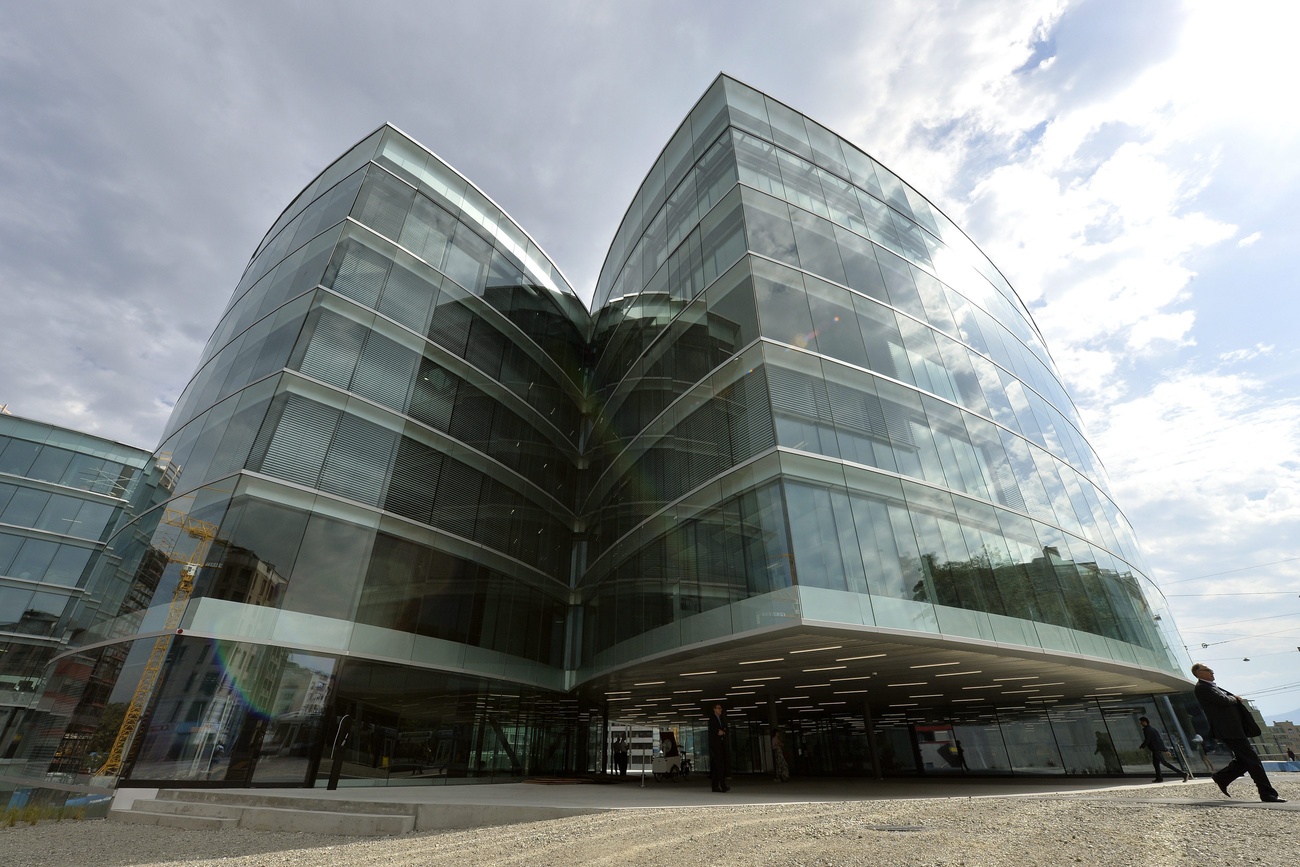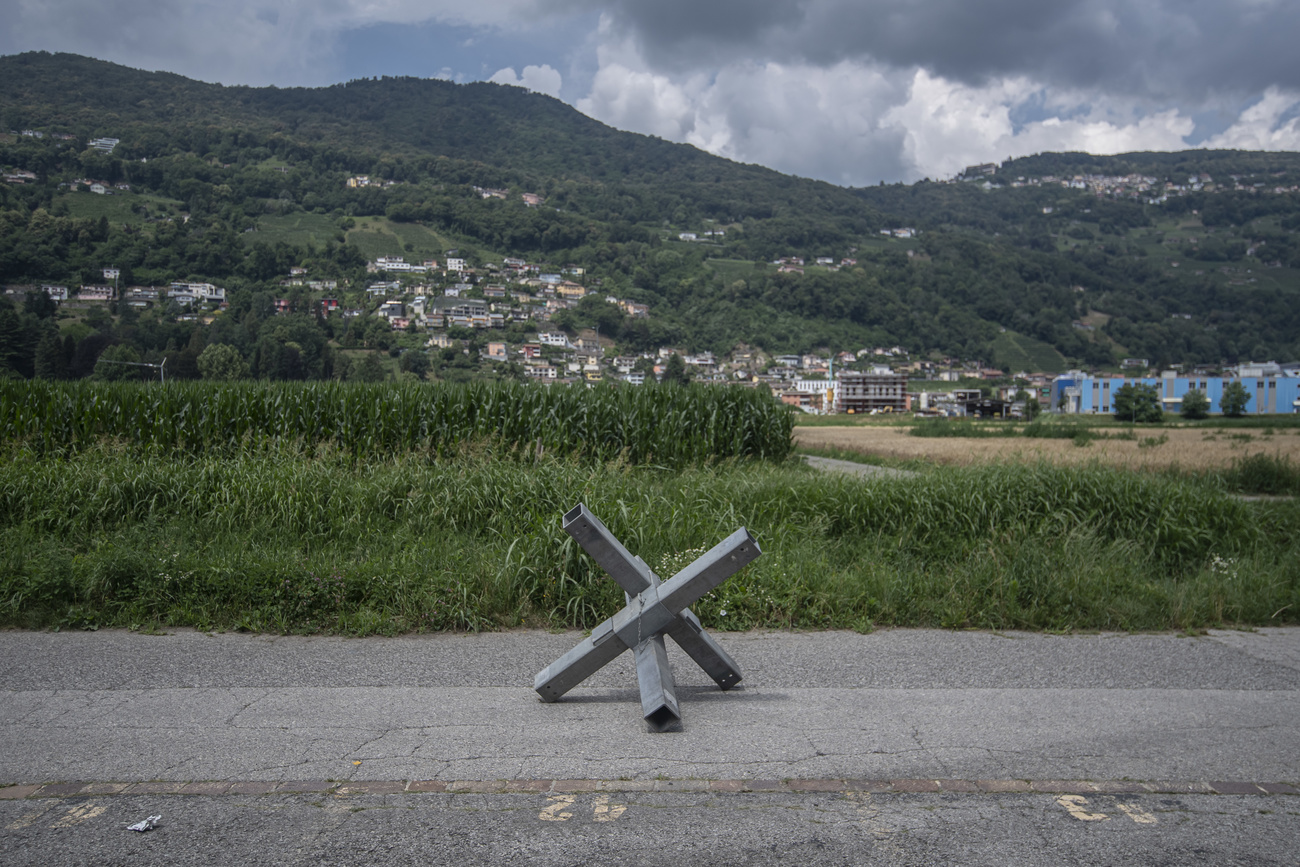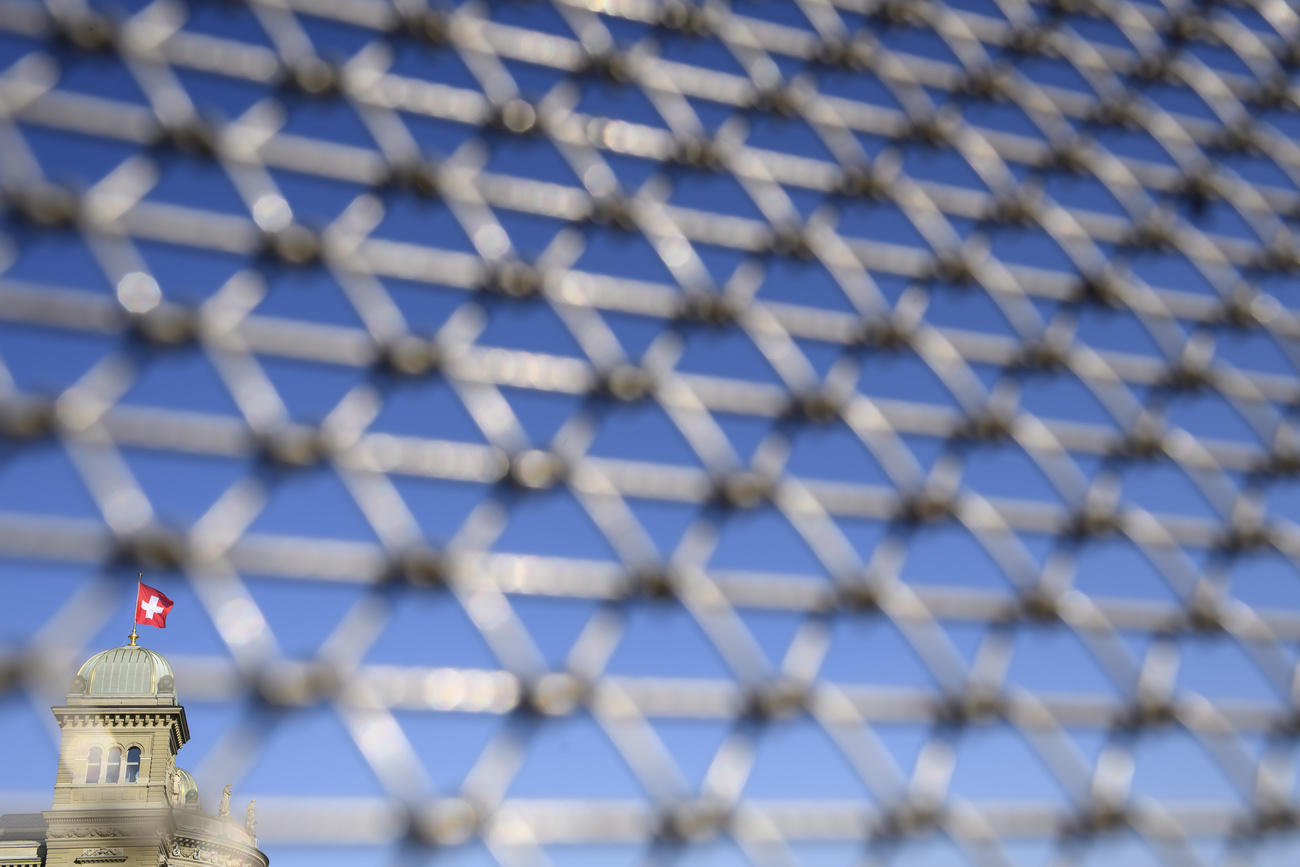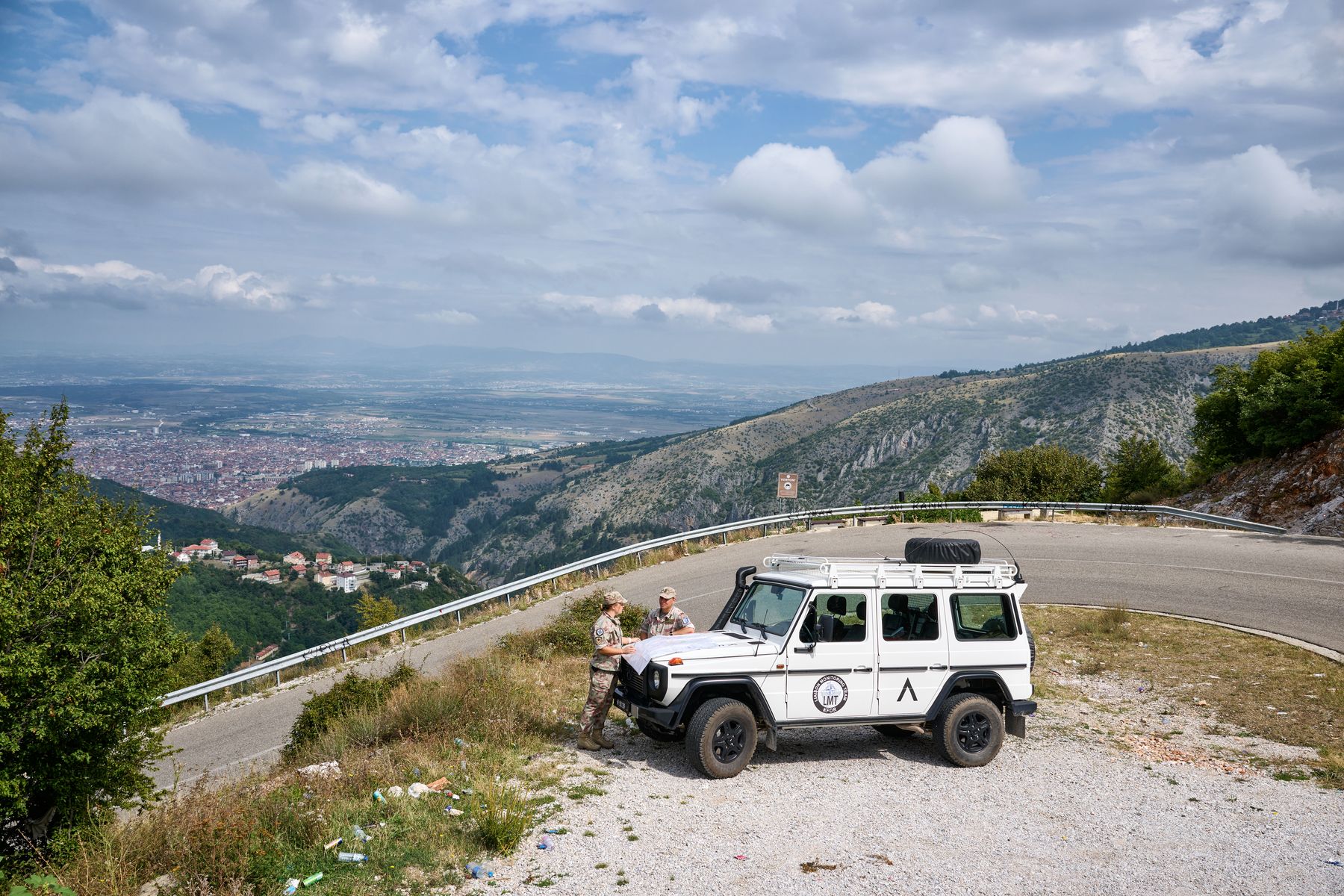
Explainer: Why NATO is opening an office in Geneva

The North Atlantic Treaty Organization (NATO) will open a liaison office in Geneva later this year, raising concerns about Swiss neutrality and the city’s reputation as the “capital of peace”. SWI swissinfo.ch explains what is at stake.
Last October Swiss media group TamediaExternal link revealed that NATO, a Brussels-based political and military alliance whose 32 members have grown closer since Russia’s invasion of Ukraine, wanted to establish an office in Geneva.
The news was later confirmed. In July an agreement to set up a NATO liaison office in Geneva was signed between the organisation and the Swiss government. But the arrival of NATO on neutral Swiss soil has sparked controversy in Switzerland. Here is what you need to know.
What’s a liaison office?
Swiss authorities stress that NATO’s presence in Switzerland will be a liaison office allowing the North Atlantic Alliance to deepen its exchanges with the organisations based in Geneva, among them the United Nations (UN). But they insist it will not cover bilateral relations between NATO and the Swiss Confederation.
NATO has similar offices in Vienna and in New York, two other UN hubs. Once its Geneva office is up and running, in the autumn, the alliance will have a liaison office in each of the main UN locations except for Nairobi, in Kenya.
The organisation will be housed at the Geneva Centre for Security Policy (GCSP) – an international foundation offering training in the fields of peace promotion and security – which is located inside the “Maison de la Paix”, in the heart of the international quarter. It will employ one person.
Why Geneva?
Geneva is a major centre for multilateral diplomacy and is at the forefront of governance in areas including disarmament and international humanitarian law, which sets the rules of war.
The European headquarters of the UN and several of its specialised agencies are based in the city, including the World Health Organization (WHO) and the International Telecommunication Union (ITU). The International Committee of the Red Cross (ICRC) also has its head office in Geneva.
It is therefore a strategic location for the North Atlantic Alliance, which has been working with the UN on peacekeeping operations for many years. It has, for example, taken part in UN-mandated military operations in Bosnia-Herzegovina, Afghanistan and Libya.
From Geneva, NATO will have access to diplomats from almost the entire international community, with more than 180 countries represented in the Swiss city. It will also be able to interact with the 750 non-governmental organisations based in Geneva, some of which are active in security or demining.
+ Russia’s invasion of Ukraine has shaken neutral European countries, making NATO more attractive to some of them:

More
Explainer: Russia pushes Europe’s neutral states closer to NATO
Why now?
Interviewed by Swiss public radio, RTSExternal link, David Sylvan, professor emeritus at the Geneva Graduate Institute, believes that the opening of this office is “one indication among others that NATO is beginning to regroup. And not just, as its name suggests, in the North Atlantic, but also in Africa and even Asia”.
This expansion is aimed at countering the growing influence of Russia and China on these two continents. In recent years, several countries that are not members of the alliance, such as Japan, South Korea, Australia and New Zealand, have attended NATO’s annual summit. Last year the organisation also floated the idea of opening a liaison office in Tokyo, before changing its mind.
NATO allies in Europe are concerned about the US presidential election in November. They worry about a possible return of former President Donald Trump, a critic of the organisation and of US support for Ukraine. Earlier this year the Republican candidate said he would “encourage” Russia to attack any NATO member that is not meeting the organisation’s defence spending target. The potential impact of a second term for Trump on the North Atlantic Alliance’s office in Geneva remains an open question.
Does the liaison office question Switzerland’s neutrality?
The opening of a NATO office in Geneva has sparked controversy, with Swiss politicians on both the left and the conservative right arguing that the establishment of a military organisation in Switzerland runs counter to the country’s neutrality. In their view, there is also a risk of damaging the city’s reputation as the “capital of peace”.
But the government believes NATO will strengthen Geneva’s position as a hub for discussions on security policy issues. The government says its decision is compatible with Switzerland’s neutrality, as the Host State Act – the legal framework that governs relations between the government and the institutions it hosts – treats NATO as an intergovernmental organisation like any other.
Politicians from the centre and the right believe that hosting the North Atlantic Alliance is in keeping with Geneva’s reputation as a welcoming place open to the world. They believe that NATO’s presence will strengthen international cooperation on peace and security issues.
The pacifist Group for a Switzerland Without an Army fears that the government’s decision is a roundabout way of putting pressure on parliament for Switzerland to join NATO, which is far from being unanimously supported by parliament.
+ Here is how the Swiss see NATO:

More
A majority of Swiss want closer ties to NATO – but with reservations
Is Switzerland moving closer to NATO?
The war in Ukraine has given new impetus to the North Atlantic Alliance, which French President Emmanuel Macron called “brain dead” in 2019. Russia’s aggression led non-aligned or neutral countries such as Finland and Sweden to join the organisation.
The question of a possible rapprochement was also raised in Switzerland. The country is not a member of NATO but has participated since 1996 in the Partnership for Peace, established between the organisation and third countries. A Swiss army contingent is deployed in Kosovo as part of the international peacekeeping force (KFOR) set up by NATO under a UN mandate.
+ To find out more about Swisscoy in Kosovo, click here:

More
Swisscoy: How Swiss participation in Kosovo peace mission lays bare the neutrality debate
In favour of closer collaboration with the alliance, Defence Minister Viola Amherd last year asked a group of experts to put forward proposals on the future of Swiss security policy.
Their report is due at the end of August. According to Swiss newspaper BlickExternal link, the report would recommend closer cooperation between NATO and Switzerland and the participation of Swiss soldiers in NATO exercises abroad. It would also recommend relaxing the war materiel re-export ban. In short, it would open the door to a redefinition of neutrality, which is why French newspaper Le MondeExternal link called the report “explosive”.
Edited by Virginie Mangin/ts
+ Listen to the Inside Geneva podcast on “Neutrality, NATO and the new world order”

In compliance with the JTI standards
More: SWI swissinfo.ch certified by the Journalism Trust Initiative



























You can find an overview of ongoing debates with our journalists here . Please join us!
If you want to start a conversation about a topic raised in this article or want to report factual errors, email us at english@swissinfo.ch.